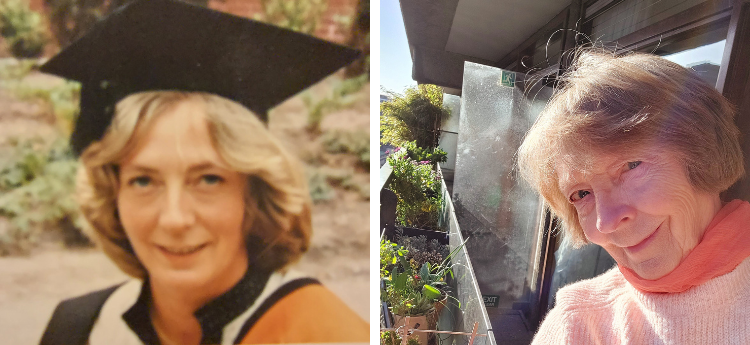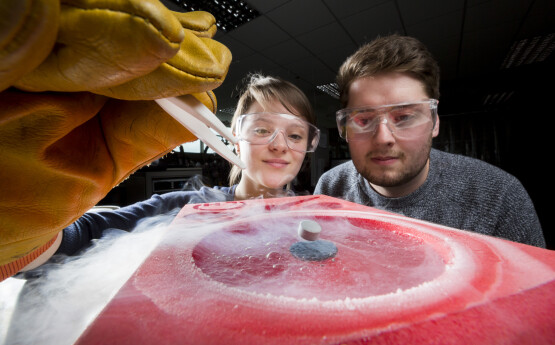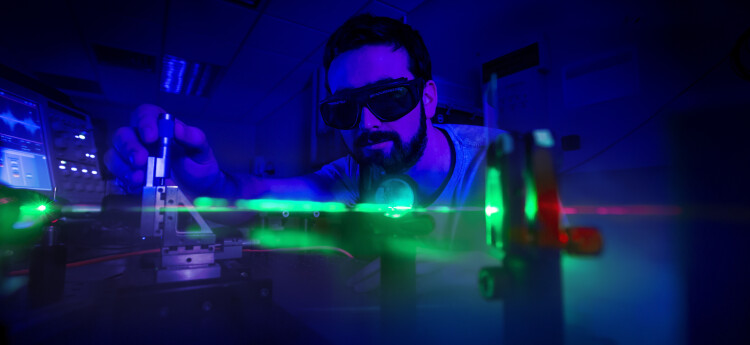Why I chose to remember the University in my Will
We are delighted to recognise Joan Borley, History and American Studies student (Class of 1977), who tells us about her time at the University and why she has made the inspiring decision to remember the University in her Will.
Can you tell us about your time at Swansea?
With the benefit of hindsight, I can say that the experience of being at University College Swansea for 3 years, had an incredible impact on my future. Getting a degree ultimately changed my life.
I was a mature student, aged 27. I’d been a secretary, working in the UK, then the USA, and also in Australia, before deciding that I wanted to have a career which would allow me to become financially independent. I had to get some A levels, and I studied pretty much on my own, following the curriculum for history and geography in 1973. But without a full grant from my education authority, I wouldn’t have been able to go to UCS. I was fortunate to get that, and I am now happy to support Swansea students through the University’s Hardship Fund.
Good quality student accommodation was fairly limited in the 1970s, particularly in inner cities. I had bought an old car, and remembered holidays on the Gower, as a teenager. So Swansea had an appeal, and I got a place in Hendrefoilan for the 1st year. The car then allowed me to enjoy a rather nomadic lifestyle on The Gower peninsular for the next 2 years.
I was offered a place for Joint Honours, Geography and American Studies. The 1st year included a 3rd subject option. I chose Politics which was interesting and relevant, as I came to appreciate several years on. Unfortunately, I didn’t enjoy the 1st year geography courses, largely because my interest was in human geography, rather than the physical geography curriculum at that time.
In the 1970s, Swansea was a college (UCS) of the University of Wales, and as such, much smaller than the current University. Fortunately, there was flexibility between faculties, and I was able to switch to History and American Studies when starting the 2nd year Joint Honours programme. This flexibility was a great thing. I knew several students who were dissatisfied in their original choices of subject, but were saved by the alternative options offered at the end of Part 1.
The mix of arts subjects naturally lead to a lot of essay writing. What I didn’t know at the time, was that I would find that experience so useful in my working life. A large part of Civil Service work involves presenting cogent arguments; the analysis of situations; and requires intellectual robustness when making recommendations to officials and ministers.

What is your best memory from your time at Swansea?
I have a lot of happy memories - one rather surprisingly so! A group of us went on a university visit to the Houses of Parliament on the very morning that John Stonehouse, MP, went missing. He was supposed to be one of our MP chaperones. Thankfully, the visit went on with another MP. Inside the House of Commons, we were waiting for a lift. When it arrived, we gazed upon the Prime Minster, Mrs Thatcher; and Keith Joseph, MP. We students parted like the Red Sea!
Joining the History Society in the 1st year proved to be a good thing. The events and parties were great fun. And there were occasional lectures from visiting historians, some of whose standard texts we’d read.
But my enduring memory is of a holiday in Italy, with a fellow student. The trip was run by the National Union of Students (NUS) in a 2nd year vac. I was about to take a 3rd year course with Dr Prys Morgan, on ‘The Cultural revolution - Renaissance to Baroque’. The trip to Rome, Florence, Sienna, Assisi, and Venice was a revelation: art, churches, bell towers, statues, architecture - not to mention the glorious food! Dr Morgan’s discussions during that final year consolidated the history of art and architecture. So much so, that it stayed with me on my extensive travels in later years across Europe, and South America.
Could you tell us about your career since graduation?
During the vacations I had been working in a local solicitors’ office, and I was encouraged to think about a career in the law. In the autumn of 1977 I enrolled in the College of Law to take Part 1 of the Solicitors’ Professional Exams. Although the course was useful in learning about several aspects of English law, I quickly concluded that I did not want to pursue such a career route. However, I think that the legal qualification helped when in 1978 I applied for a post with the recently created Equal Opportunities Commission, which had set up in Manchester.
Getting to grips with the Treaty of Rome (1957); the Sex discrimination Act (1975) and the Equal Pay Act, created a huge learning curve, which was equally stimulating.
In my spare time in 1982-3 I undertook a Masters’ degree at Manchester University, by field work in secondary schools, looking at the impact of the education requirements of the Sex Discrimination Act. Little had really changed in those early days, but it opened up opportunities for girls and boys to take any subject without being barred on the grounds of gender.
The Civil Service has opportunities for people to move across Departments, and after 11 years with the EOC I opted for a change of career, and joined the Health and Safety Executive, first in Liverpool as an inspector, and then in 1995 I moved to HSE’s Headquarters in London.
I enjoyed the work on Departmental policy, and working on what was known as ‘European Enlargement’, when countries applied to join the European Union. I worked extensively in Europe i.e. Hungary, the Czech Republic, Malta and Cyprus. In 2002, I moved to what we now know to be the Ministry of Justice, and continued with more international work, until 2009.
Why did you choose to remember Swansea University in your Will?
I like to be charitable if I can, and where I can. So many issues are far too big for Governments alone. As people say, “We are all in it together”, and we must do our bit, particularly when faced with the negative global impacts of human activities.
While I was pursuing my career, the University was turning into a huge and impressive entity. During the Covid years I read that the University was involved in the recycling of face masks. This resonated with me, so I am making my Gift in Will to the Faculty of Science and Engineering in order to contribute to their excellent work on the re-use of plastics into usable material.


